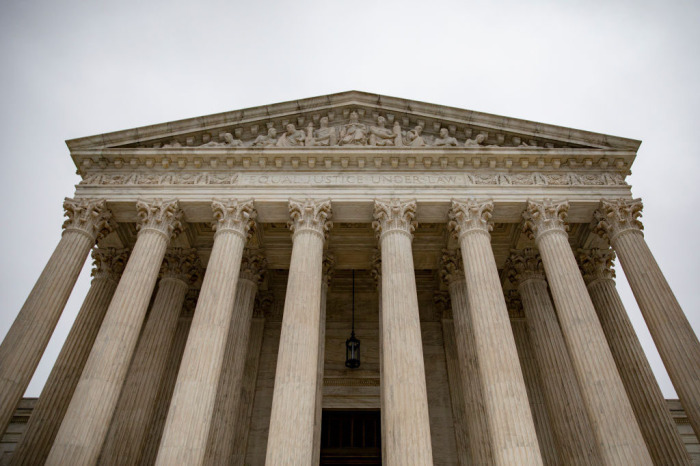Supreme Court allows DHS rule on immigrant welfare benefits heavily criticized by evangelical groups

The U.S. Supreme Court ruled 5-4 on Monday that a Trump administration immigration rule that has been criticized by some evangelical leaders who say it could prevent poor immigrant families from being reunited can go into effect, pending an appeal.
The court voted on ideological lines Monday in favor of the Department of Homeland Security, staying two lower court rulings that blocked the department’s “public charge” rule from going into effect until the U.S. Court of Appeals for the Second Circuit can rule on the case.
The agency, through the U.S. Citizenship and Immigration Services in 2018, introduced a rule that alters the way the federal government implements “the public charge ground of inadmissibility” for immigrants applying for visas and green cards who use taxpayer-funded government assistance such as food stamps, housing benefits of Medicaid.
The rule defines “public charge” as a person who “receives one or more public benefits.” The rule was approved after a 10-month public comment period that resulted in over 266,000 public comments.
Critics of the rule contend that it could give the DHS more discretion to deny visas and green cards to immigrants who rely too heavily on taxpayer-funded public assistance.
According to SCOTUS Blog’s Amy Howe, the government argued that it would suffer “effectively irreparable harm” if it is prevented from implementing the new rule until the Second Circuit can rule on the case.
“But, in light of all that’s come before, it would be delusional to think that one stay today suffices to remedy the problem,” wrote Justice Neil Gorsuch in a concurring opinion. “The real problem here is the increasingly common practice of trial courts ordering relief that transcends the concurring cases before them. Whether framed as injunctions of ‘nationwide,’ ‘universal,’ or ‘cosmic’ scope, these orders share the same basic flaw — they direct how the defendant must act toward persons who are not parties to the case.”
Acting DHS Secretary Ken Cuccinelli praised the court’s decision on Monday.
“It is very clear the U.S. Supreme Court is fed up with these national injunctions by judges who are trying to impose their policy preferences instead of enforcing the law and we see this again with the Supreme Court stepping in the way they have here and we very much appreciate it,” he told CNN.
Marielena Hincapié, executive director of the National Immigration Law Center, said she was disappointed by the court’s ruling.
“We will continue to fight Trump’s effort to redefine who is considered worthy of being an American and what we look like as a nation,” Hincapié said in a statement. “We won’t stop until we win and all families have the opportunity to live healthy lives and thrive.”
Those in favor of the DHS rule view the court’s decision as a “win for Americans employees, whose wages are being suppressed, and housing costs are rising amid the business-backed inflow of roughly 1 million immigrant workers, consumers, and renters each year.”
A coalition of evangelical leaders and organizations called Evangelical Immigration Table voiced concern with the rule in late 2018. The coalition feared the rule would keep families separated.
Matthew Soerens, the national coordinator for the Evangelical Immigration Table, responded to the Supreme Court’s decision in a Twitter thread.
“To be clear, this rule does nothing to change eligibility for public benefits: most categories of immigrants are already ineligible for most public benefits,” he wrote. “Instead, bureaucrats must now predict (based on factors such as if a couple currently earns less than 250% of the poverty line, $65K+ for a family of 4) if they might ever be so poor as to qualify for public benefits, even if they make a legally binding commitment not to use them.”
Soerens, who's also employed by the evangelical resettlement organization World Relief, contends that the effect will be “to separate families” and forbid “married couples from living together lawfully with their kids in the U.S. because an officer thinks they might not make enough money.”
“One estimate is that it could lead to as many as 200,000 married couples annually being denied immigrant visas, which is one reason why evangelical institutions such as [National Association of Evangelicals], [the Southern Baptist Convention’s Ethics & Religious Liberty Commission],[World Relief] and the [Council for Christian Colleges and Universities] have formally opposed this new rule.”
Follow Samuel Smith on Twitter: @IamSamSmith
or Facebook: SamuelSmithCP





























